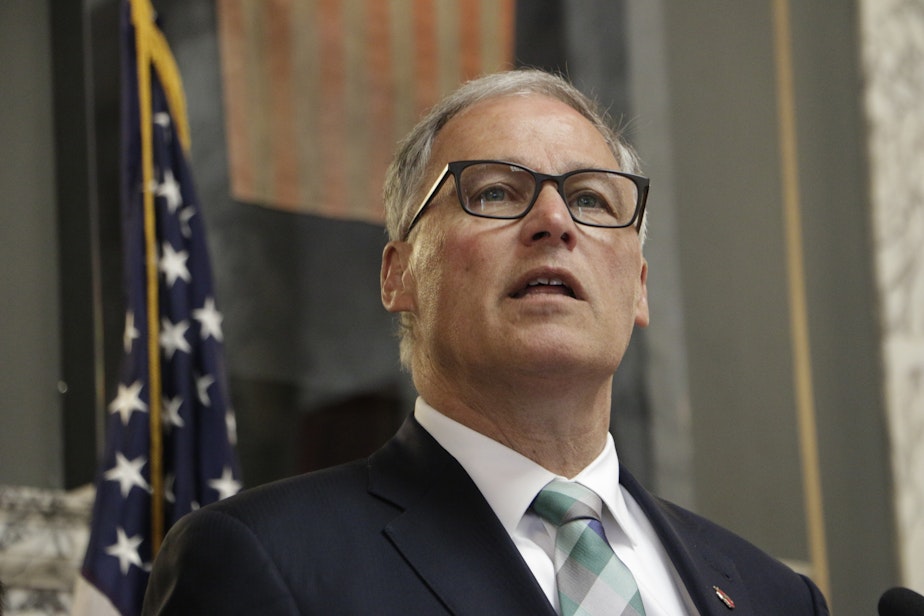'New opportunities we didn't have before' – Gov. Inslee talks climate policy

Washington is phasing out the sale of new gas-powered vehicles by 2035.
Gov. Jay Inslee announced that decision just over a week ago.
It's one of a number of climate-based policies we've seen both here in Washington, and across the country in recent weeks.
Inslee ran on the need to address climate change in his 2020 presidential campaign.
But, big as they are, are these latest steps big enough?
Soundside guest host Kim Malcolm sat down with Gov. Inslee to ask him about recent environmental decisions made by the state.
On banning the sale of new gas-powered vehicles after 2035
"We've been planning to do this for quite some time," Inslee said. He noted that the decision was delayed until California announced a similar ban due to federal law. "The only way to solve this problem is to go to zero emission vehicle."
Inslee said the state has appropriated $1 billion to pay for things like new charging stations for electric vehicles, which includes $69 million in the current fiscal year for community based onsite charging stations.
"We have $71 million over the next five years that are coming in federal funds for fast charging stations along our highways," Inslee said. "We have $25 million directed to those low-income Washingtonians to make sure that they can get charging infrastructure."
Sponsored
Inslee noted new federal legislation will help increase charging infrastructure as well.
The governor acknowledged that the state will have to determine a new revenue source for road maintenance, which currently comes from a gas tax. But that, he says, is a problem for years down the line, with plenty of time to find solutions.
On the status of the lower Snake River dams
Last month Gov. Inslee and Sen. Patty Murray released a report on the feasibility of removing four dams on the Lower Snake River, which generate renewable hydroelectric power. It is feasible to remove the dams, Inslee said, once new infrastructure has been built to replace the services the dams provide.
"We can't just blow up the dams and not having the replacement," he explained. "So, this report calls for us to develop a mechanism to replace those services so that the dams ultimately could be breached in the future, which would require congressional action."
Sponsored
The governor also acknowledged the importance of having tribal members at the table when discussing the future of the dams and he emphasized that any energy solution is going to have some impact.
"For wind, it's visually you can see the wind turbines. For solar, it's visual and it takes up land," Inslee said. "So, we have to recognize if we are going to have clean energy, there are going to be some impacts somewhere."
On fighting feeling hopeless about climate change
Inslee responded to a question from a KUOW listener about feeling hopeless in the face of a continuing onslaught of climate-related news, most of which is bad.
"The number one antidote to fear and anxiety is action," Inslee said. "If you want to try to reduce the stress you're feeling, the number one thing you can do is to take action."
Sponsored
From voting and supporting candidates to going into the clean energy industry as a career, Inslee said every single person can take action and have an impact.





